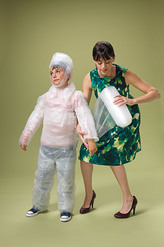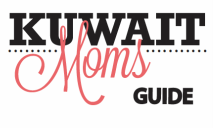
By Jamie Etheridge
I’ve been reading a lot lately about children and risks. I admit I’m one of those moms who make her kids hold her hand when they cross the street. I probably say ‘Be Careful’ like a hundred times a day (per kid) and I am definitely not willing to let my girls wander our street by themselves (even when they are older) nor allow them to ride in cars without their seat belts.
I never went so far as to cover power outlets with plastic plugs nor placed a plastic cover on the toilet seat. But from the moment of my first child’s first breath I felt an overwhelming need to protect my children from every conceivable and (as my husband often points out, absurdly unlikely) potential harm. In my eyes, the dangers of the world are clear and present. Maybe I overreact. Maybe I overprotect but in the end if they are safe then better safe than sorry, right?
The dangers of overprotectiveness
Wrong. Or at least that is what a growing chorus of voices in the US and Europe are trumpeting as they point out that children need to be confronted with risk. In a lengthy feature in the March 2014 issue of The Atlantic, a US social and political magazine, Hanna Rosin introduces us to the up and coming idea of adventure playgrounds. She visits one in the UK, essentially a junk yard cum treehouse where (distantly supervised) children are allowed to roam free or play with fire, old tires, stacked wooden crates and other dangerously attractive loose parts.
The thrust of the article is that the children of the Millennial generation and those who come after (think kids who are toddlers now) are robbed of the chance to learn to take and manage risks, to explore and discover and have ‘freer outdoor play.’
This in turn reduces their ability to effectively gauge risks, lowers self confidence and self esteem, arrests emotional and physical development, creates a dependency on adults to provide leadership and guidance at all times, encourages children to push even further boundaries in order to ‘face their fears’ and erodes a child’s ability to be creative and elaborate. In other words, the babying of our children infantilizes them and in effect,stunts theirgrowth.
The article is the latest in a growing body of literature about the effects of what’s often labeled ‘helicopter parenting’. As early as 2004, Psychology Today argued in an article titled, A Nation of Wimps, that overprotective parenting fostered fragility in children which could lead to depression, binge drinking and mental health problems later in life. That article, by Hara EstroffMarano, also noted that the sterile and rubberized playgrounds discouraged rather than encouraged creative play and further eroded children’s development into capable adults.
Achieving a balance
But 20 years later, parents of young children take it as a matter of course that the parks and playgrounds should have rubber flooring, that children need near constant supervision and that allowing kids to engage in risky behaviors like climbing trees or roaming the streets by themselves is simply bad parenting.
Living in Kuwait presents whole other set of challenges for parents of young children. The simple fact that the presence of so many communities and their near complete segmentation and isolation from each other socially means that we often don’t know our neighbors.
Dangers do exists and bad accidents can and do happen. So the question becomes, how do we create a balance? How do we let our kids take risks, explore and roam unsupervised while also keeping them safe?
I’m not sure I have any answers. I’ve started by trying not to do everything for my girls. They have to dress themselves (well, the 4 year old is still a bit young so she gets help) and I’ve let my 7 year old buy ice cream from the street vendor (inside I’m cringing at the questionable sanitary conditions of the ice cream cart) while I watched from far. I let them roam in the parks and malls though usually they have to be within eyesight or I start to panic. One writer in the states has a book and blog called Free Range Kids that offers some advice and tips on giving kids more freedom.
As I’ve learned, the overload of parenting advice can also be detrimental – to my children’s development and my peace of mind. So part of me just lets go. I watch them and when they signal a need for more freedom, I try to give it to them. I may not always get it right and I definitely still worry about their safety, well being, health and happiness. But at least I’m trying and seriously, what more can anyone do?
For further reading:
1. The Overprotected Kid by Hanna Rosin
2. A Nation of Wimps
3. Dear Parents: Please Relax, It’s Just Camp
4. (Over) Protective Parents: Helpful or Harmful
5. Free Range Kids: How to raise Safe, Self-Reliant Kids (without going nuts with worry)

 RSS Feed
RSS Feed
